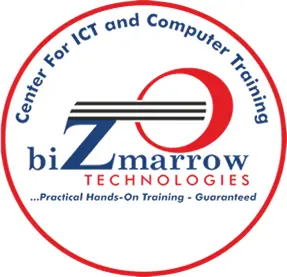Like a bad breakup, an unsuccessful job interview can leave Job Seekers feeling broken and rejected, wondering why you never got a call back. While a recruiter will rarely tell you why you were bypassed, the truth is, most rejections are due to the same basic issues. Occasionally the situation is simply out of your control, but sometimes Most Job seekers in Nigeria are the cause of their problems

So you landed yourself a face-to-face interview! Congratulations! With so many candidates applying online and seeing their resumes disappear into “the black hole,” you’re doing great.
This means:
1) Someone actually read your resume
2) They thought your resume indicated enough relevant experience to call you
3) You passed the phone screen if any–- you said enough of the right things to show you’re well-qualified enough to justify the time for the hiring manager (and perhaps others) to meet you in person
Fantastic! Now, all you have to do is close the deal in the interview.
Unfortunately, that’s where a lot of qualified candidates run into trouble. Maybe you never heard back after the interview, maybe you got a frustratingly vague rejection email, maybe you got called back for another round only to get rejected later.
Rejection sucks. It is particularly frustrating when you know you’d be great in the job.
If you don’t know what you’re doing “wrong,” you can’t fix it. Most interviewers will not take the time to give you honest, useful feedback about why they decided not to hire you.
The Reason
Uche Okoye just graduated with second class upper and ready to work, good enough a company was just ready to hire him, but unfortunately during the interview, it was discovered that Uche does not know how to use the computer and basic Microsoft packages.
Ruth Adams lost her job this year, and when she went to look for a new one she discovered that, even with all of her experience, she wasn’t prepared for the modern work force. When prospective employers asked about her computer skills, she had no answer.
It turns out “that is extremely important,” said Ruth, who needed help with using spreadsheets and other entry-level office computer tasks. She is now enrolled in computer training courses offered by Bizmarrow Computer Training School Gwarinpa Abuja
A digital divide in the hiring office
However deeply computers may have embedded themselves into modern life, there are still millions of Nigerians Job seekers for whom they remain a challenge. For these Nigerians, finding a new job during a time of high unemployment can be especially difficult.
“Its so sad that 80% of Nigerian Job seekers don’t have the necessary computer knowledge needed in the modern workplace, bad enough, most people in this category are university graduates” said Erowele Ikechukwu, a Director in Bizmarrow Technologies Ltd ; a computer and ICT training school based in Gwarinpa Abuja
According to him, “one common statement among those that come to learn computer in our computer school is –I have missed so many job opportunities because employers always ask me how good am I with computer and my answer is always NOT TOO GOOD”
He went on to lament the damage hand held devices are causing to most youths in the employment range. “it looks like many of our youths don’t know the difference between hand held devices and computers till they face the interviewers, they can type fast with their phone, pink and do all sorts of things, but get them in front of the computer or laptop and you will see confusion written all over their faces”
Older workers face many obstacles as computers take over the office place
Among those hardest hit by the demand for computer skills are older workers, for whom unemployment rates are at 70-year highs, having more than doubled since the recession began
While older job-seekers are considered more reliable and motivated than their younger competitors, “many lack computer sophistication and job-seeking skills,” said Cindy Padilla, head of the state’s Department of Aging and Long-Term Services.
The challenges are multiple, according to research by the American Medical Informatics Association, the professional organization for specialists in the use of information in health care. Besides being less likely to have kept up to date on the latest software, older workers also face physical limitations, such as failing memory, trouble reading small typefaces used in common interfaces and difficulty using a mouse.
The good news for those who have learned computer skills and those willing to learn, is that computers and computer skills will always be needed in the modern workplace, while those without computer skills will always find it very difficult getting a job and those who are working already are likely to lose their jobs due to lack of computer knowledge
CLICK HERE TO SIGN UP








